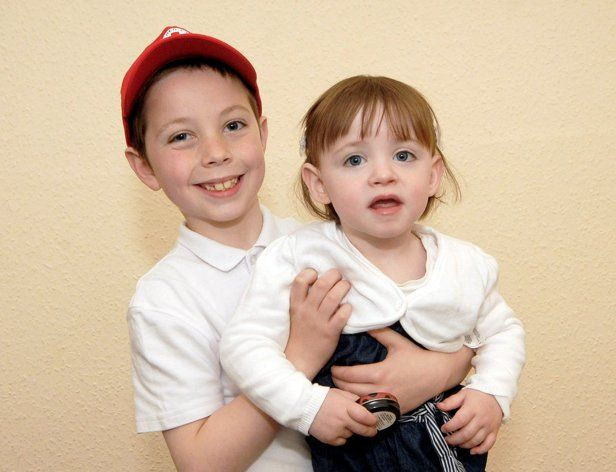8-year-old Harry Flynn Learns 'Mouth-To-Mouth' CPR, Saves Little Sister's Life 22 Times

Not many kids can claim to be heroes when they are in primary school, but Harry Flynn is one of a kind. The 8-year-old who learned mouth-to-mouth resuscitation from a youth organization at the Red Cross, has used his skills to revive his younger sister at least 22 times.
Isabelle Flynn, Harry's 2-year-old sister, suffers from apnea of prematurity, a condition which causes her to stop breathing on a regular basis. As its name suggests, the condition tends to occur children born premature, and Isabelle was born about 12 weeks early.
Typically episodes of absent breathing are rectified by gently tapping or rubbing the afflicted child, and most children grow out of it by the time they leave the hospital.
But Isabelle is a special case. She has had continual bouts of apnea since returning home, with as many two breath-stopping incidents per week.
Harry started learning emergency medical techniques at the age of five after signing up with Red Cross TeddyBears, a youth organization with the Irish Red Cross. He has used his skills to resuscitate Isabelle at the supermarket and during family outings. His sister's room is now equipped with a sensor that alerts him if she stops breathing.
Harry's heroics raise an interesting question: should learning mouth-to-mouth, cardiopulmonary recisitation (CPR), and other simple emergency medicine techniques be mandatory in schools? The American Heart Association estimates that up to 70 percent of people may not know what to do during a cardiac emergency.
CPR can effectively revive a person suffering cardiac arrest, and one study in Austria showed that children as young as 9 could successfully learn the technique. Mandatory CPR training in schools could yield a fleet of youngsters that are prepped and ready to act during an emergency.
Although mouth-to-mouth resuscitation was removed from the adult guidelines for CPR in 2010, it remains an important staple of restoring respiration in children.
For now, Harry is her white knight, but Isabelle's condition is improving, and her doctors are confident that she will eventually get better.



























